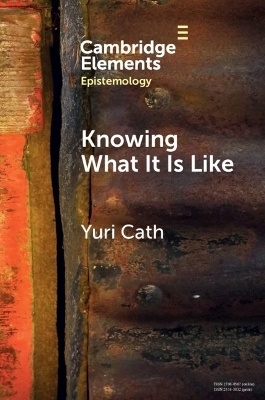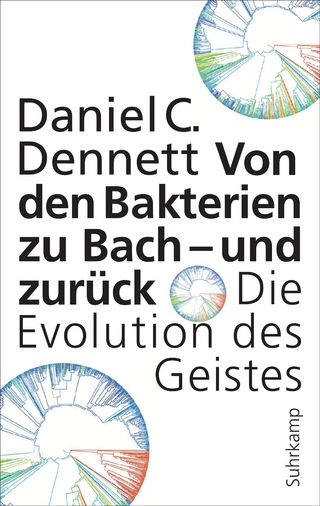
Knowing What It Is Like
Seiten
2024
Cambridge University Press (Verlag)
978-1-009-32373-4 (ISBN)
Cambridge University Press (Verlag)
978-1-009-32373-4 (ISBN)
- Lieferbar (Termin unbekannt)
- Portofrei ab CHF 40
- Auch auf Rechnung
- Artikel merken
This Element explores the concept of 'what it is like' knowledge, addressing the tension between having a corresponding experience and knowing an answer to the 'what it is like' question. It explains debates and conflicts in attitudes toward sharing this knowledge through testimony, literature, theories, and simulations.
What kind of knowledge does one have when one knows what it is like to, say, fall in love, eat vegemite™, be a parent, or ride a bike? This Element addresses this question by exploring the tension between two plausible theses about this form of knowledge: (i) that to possess it one must have had the corresponding experience, and (ii) that to possess it one must know an answer to the 'what it is like' question. The Element shows how the tension between these two theses helps to explain existing debates about this form of knowledge, as well as puzzling conflicts in our attitudes towards the possibility of sharing this knowledge through testimony, or other sources like literature, theories, and simulations. The author also offers a view of 'what it is like' knowledge which can resolve both the tension between (i) and (ii), and these puzzles around testimony.
What kind of knowledge does one have when one knows what it is like to, say, fall in love, eat vegemite™, be a parent, or ride a bike? This Element addresses this question by exploring the tension between two plausible theses about this form of knowledge: (i) that to possess it one must have had the corresponding experience, and (ii) that to possess it one must know an answer to the 'what it is like' question. The Element shows how the tension between these two theses helps to explain existing debates about this form of knowledge, as well as puzzling conflicts in our attitudes towards the possibility of sharing this knowledge through testimony, or other sources like literature, theories, and simulations. The author also offers a view of 'what it is like' knowledge which can resolve both the tension between (i) and (ii), and these puzzles around testimony.
1. Introduction; 2. Anti-Intellectualism; 3. Qualified Intellectualism; 4. Downstream Intellectualism; 5. Testimony and partial WIL-knowledge; 6. Pitfalls and possibilities; Conclusions; References.
| Erscheinungsdatum | 10.12.2024 |
|---|---|
| Reihe/Serie | Elements in Epistemology |
| Zusatzinfo | Worked examples or Exercises |
| Verlagsort | Cambridge |
| Sprache | englisch |
| Themenwelt | Geisteswissenschaften ► Philosophie ► Erkenntnistheorie / Wissenschaftstheorie |
| Geisteswissenschaften ► Philosophie ► Ethik | |
| ISBN-10 | 1-009-32373-3 / 1009323733 |
| ISBN-13 | 978-1-009-32373-4 / 9781009323734 |
| Zustand | Neuware |
| Informationen gemäß Produktsicherheitsverordnung (GPSR) | |
| Haben Sie eine Frage zum Produkt? |
Mehr entdecken
aus dem Bereich
aus dem Bereich
Buch | Softcover (2023)
Reclam, Philipp (Verlag)
CHF 9,80
die Grundlegung der modernen Philosophie
Buch | Softcover (2023)
C.H.Beck (Verlag)
CHF 25,20
die Evolution des Geistes
Buch | Softcover (2025)
Suhrkamp (Verlag)
CHF 41,95
![Was heißt Denken?. Vorlesung Wintersemester 1951/52. [Was bedeutet das alles?] - Martin Heidegger](/media/113619842)

